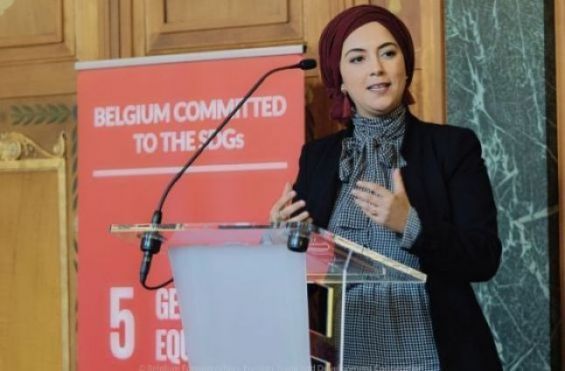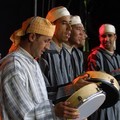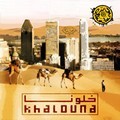Integration, disparities among locals and migrant communities are issues that marked her academic journey and career. Fatima Zibouh knows what she is talking about, as she was herself born and raised in Brussels to immigrant parents.
«I grew up in Molenbeek, a melting pot. This has helped build who I am today and this is what made me aware of inclusion and diversity issues, which have become the common thread of my commitment», Fatima Zibouh told Yabiladi. It is also in Belgium that her parents met, years after her grandparents from Tansefit and settled down in the country.
Diversity at the university
When in college, at the Université libre de Bruxelles (ULB), Fatima Zibouh showed great interest in questions related to migration, becoming the first young woman in her family to get a higher education degree.
«What made me realize these disparities is really the university.My father was an electrician, my mother never went to school.At ULB, I met students from a very different environment, who, for example, would have a large library at home».
In the beginning, Fatima Zibouh felt like a «fish out of water», but later realized that this was «a huge opportunity» for her. As her university career was progressing, she was convinced that «these different worlds must meet one day and create a bridge».

After studying political science, she continued with a master's degree in human rights. She was mostly interested in social and cultural issues, while focusing on those related to fundamental rights, freedom of expression and gender equality.
Little by little, she started working at ULB as a researcher on issues related to cultural diversity, foreigners' right to vote, political participation of foreigners, women migration, European policies and integration policies.
Currently, she is working on a PhD on «cultural and artistic expressions of Belgian-Moroccans, the change of identities and political demands, and what this implies as a redefinition of belongingness through art and culture».
Fighting against discrimination by striving for excellence
As the eldest sister, Fatima Zibouh became a role model to her siblings and within the Moroccan-Belgian community, despite the discrimination she says she has witnessed and personally experienced.
«Discrimination is there, we live it and experience it, and it pushes us to do more than others, to show competence and qualities.It is a permanent mental weight that takes a toll and make us think that we are not allowed to make mistakes».
Fatima Zibouh works for a public body dedicated to the inclusion of jobseekers who are discriminated against, because of their gender or their foreign origins. At the same time, she works with several organizations working on inclusion.

The Moroccan activist remembers having carried out several projects to fight against prejudice and stereotypes, particularly after the 2016 attacks in Brussels, by co-organizing the «March against terror, which brought together more than 10,000 people». Fatima Zibouh also participated in the GMIL project, «bringing together 1,000 Belgian citizens to call for participatory democracy in 2011».
Most recently, in 2019, she contributed to the «W100» initiative, consisting of «bringing together 100 Brussels women of all origins». She also chairs the Aula Magna think tank and in her childhood neighborhood she runs «Foyer des Jeunes Molenbeek».
Fatima Zibouh is also interested in the political participation of people of North African origin. «In Brussels, the political representation of foreigners is one of the most important in Belgium and even in Europe, since 1/5 of the elected representatives come from Moroccan immigration», she explained. Despite this strong point, discrimination persists. According to her, it particularly targets Afro-descendants and communities of Turkish origin.

But while fighting against these stereotypes, Fatima Zibouh prefers «to go beyond the victim approach». She says she took this situation as being «also an opportunity to give the best, to strive for excellence, whatever the field, which gives more merit».
Resilience and effort, a weapon against discrimination
Having to deal with this daily weight because of their immigrant background, «Belgian-Moroccans show a great capacity for resilience», Fatima Zibouh said. She underlined in fact that «in a country that they helped build», migration history remains invisible.
In these migratory trajectories, women also seem to be the most forgotten. When you are a woman of foreign origin and from a working-class background, it is even more difficult to counter this, explained Fatima Zibouh. «But these women are showing great courage, creativity, and even more resilience. They are fighters and many of them fight against this pressure», she said.

A few months ago, two events marked Fatima Zibouh's journey, giving hope and strength to advance the cause of young Belgian-Moroccans and Belgian people with immigrant backgrounds. «I have been appointed by the Belgian Minister of Foreign Affairs as Ambassador for Diversity», she proudly told.
On March 8, she was also one of ten personalities invited to a lunch set by the royal family of Belgium, which she also considers «a huge pride for women and for people of Moroccan origin».
«I was very touched, it's a beautiful way to pay tribute to my mother, who died three years ago of cancer at the age of 57 years», she said full of emotion. «It also shows that it is possible to create spaces where different communities meet, deconstruct the popular misconceptions on both sides and build an inclusive society», concludes Fatima Zibouh full of hope.





 chargement...
chargement...













